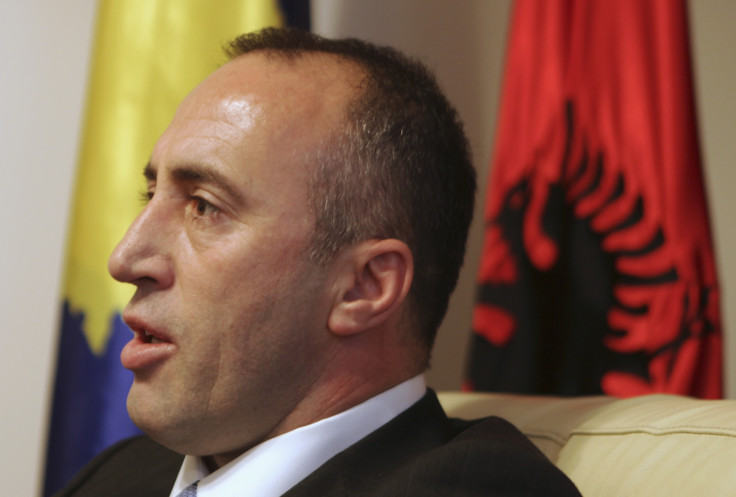Serbia-Kosovo tensions spike over fate of detained ex-Kosovo war commander
Thousands protested in Pristina for the release of the former prime minister Ramush Haradinaj.

Speculation is mounting over whether the former Kosovo war commander, whose detention in France has sparked widespread protests, may be sent to a special court in The Hague dealing with war crimes from the Balkans war two decades ago.
Ramush Haradinaj was arrested on 4 January by French border police due to a warrant issued by Serbia in 2004. He faces allegations he headed a campaign of murder and torture against ethnic Serbs in 1998 and 1999.
He denies the allegations and was released on bail pending a French court decision. On Saturday (21 January), thousands gathered in the Kosovo capital, Pristina, calling for his release.
Head of the Serbian war crimes prosecution office, Milan Petrovic, told the Serbian language version of Deutsche Welle that the former Kosovo Liberation Army (KLA) commander might be extradited to a special court established in The Hague in 2016 to deal with claims from the Balkan conflict.
Petrovic said whatever the French court ruling, Belgrade would continue its pursuit of Haradinaj that "until he is brought before a court and answers for the crimes we have charged him with".
Director of Radio Belgrade, Milivoje Mihajlovic, told Deutsche Welle that Haradinaj would be more likely to be extradited to The Hague than to Serbia.
"I don't think there's mood in France to extradite him to Serbia.
"It's important for reconciliation and for truth about the crimes, as well as a debt toward the families and the victims – and Albanians were also among his victims, that this is a clean court process without politics," he added.
Haradinaj was said to have helped defend his village against Serbian forces when he was a KLA commander, allegations he denies. He has already been acquitted twice of war crimes charges at the United Nations. He says the allegations were fabricated to undermine his influence.
Tensions are high between Serbia and Kosovo, which unilaterally declared independence from it in 2008, in a move that has been recognised internationally by more than 100 countries.
Earlier in January, Kosovo accused Belgrade of an act of provocation when a Serbian train which had the slogan "Kosovo is Serbia" painted on it, was driven to northern Kosovo, although it was stopped from crossing the border.
The president of Kosovo, Hashim Thaci, told Reuters that Serbia wanted to seize northern Kosovo, akin to Russia's annexation of Ukraine's Crimea region in 2014.
Both sides have been invited to talks at the European Union to discuss relations in Brussels on Tuesday (24 January).
© Copyright IBTimes 2025. All rights reserved.






















